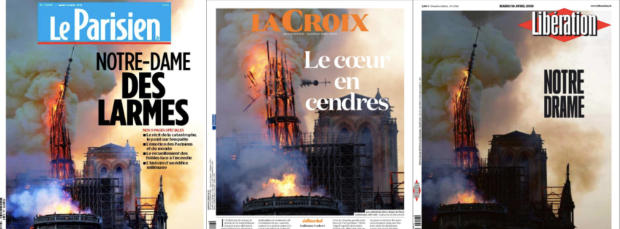
The fire at Notre Dame cathedral strikes me as cataclysmic.
I've never had the honor of a visit to Paris. But I have a family connection. My grandfather Comstock (who passed away in the 1990s) worked for years on a never-completed book that would have told the story of the great Gothic Cathedrals of Europe from the point of view of architecture-as-engineering.
The fundamental idea was to be that engineers solve problems, and that the solutions to one set of problems invariably raise new problems, requiring a new round of solutions, etc. So the engineers' history of any subject is a history of this back and forth. Architecture is a form of engineering, and the creation of large sacred light and air-friendly spaces is one example. Sacred though the goal was supposed to be, the path can be understood in secular terms, as problems and solutions and new problems.
Further, we can understand the great aesthetic appeal of cathedrals through understanding their history in this way.
My own understanding is that such would have been the theme of the book, had it ever been completed. But alas, it never was.
Grandpa Comstock (an agnostic) spoke often of Notre Dame as among the inspirations for this line of thought and work.
Vale and farewell, great and awesome structure.
Comments
Post a Comment